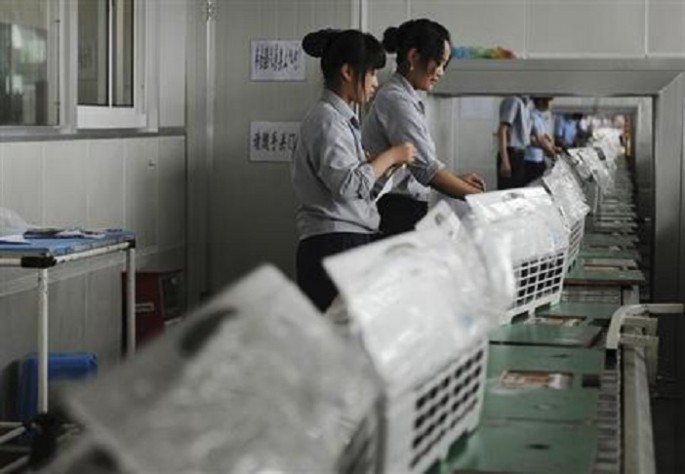Gree Electric Appliances Inc., China's leading home appliance maker, is set to buy a local electric car producer which controls a NASDAQ-listed U.S. battery firm, as part of its plan to branch into new-energy vehicles, China Daily reported.
The report said that the move is part of the company's latest effort to diversify its business amid the declining air-conditioner sales which weigh on revenue and profitability.
The company said on Sunday, March 6, that it is planning to issue new shares to buy Zhuhai Yinlong New Energy Co., which itself is the controlling shareholder in Altair Nanotechnologies Inc, a lithium battery company based in Nevada.
A spokesman for Gree did not disclose what stake it would take in Zhuhai Yinlong or the possible investment value, as details of the deal are still under discussions, the report said.
According to data from its official website, Zhuhai Yinlong became China's seventh largest seller of electric buses in 2015, after racking up 7,000 orders and producing more than 3,100 electric vehicles.
As the company has three production bases across the country, it can make 33,000 electric buses and 100,000 electricity-powered SUVs yearly.
Liu Buchen, an independent researcher on the home appliance sector, said that the move came as Gree is under increasing pressure to seek for new growth points.
"Gree generates about 95 percent of its revenue from selling air conditioners," Liu said. "But over-reliance on a single product is increasing the company's financial risks, especially as the air-conditioner industry is having bad years."
Gree's revenue fell more than 17 percent year-on-year to 81.5 billion yuan ($12.5 billion) in the first three quarters of 2015 due to overcapacity and weakening demand.
"Undoubtedly, the new-energy vehicle market boasts huge growth potential, but it is difficult to say whether that can be Gree's opportunity, given the fierce competition," Liu said.
Partly driven by strong policy support from the government, Internet giants Tencent Holdings Ltd. and Baidu Inc., as well as e-commerce heavyweight Alibaba Group Holding Ltd., have shown interest to engage in the sector either through partnerships or acquisitions.
According to the China Association of Automobile Manufacturers, sales of new-energy vehicles last year more than tripled to more than 331,000 units in China, including more than 247,000 pure electric cars and 83,600 plug-in hybrids.
The report said that the central government expects the cumulative sales of new-energy vehicles to reach 5 million units from 2012 to 2020.
According to the report, it was not the first time that Gree has shown interest in new-energy vehicles, or beyond the home appliances sector. Last year, Gree launched a 1,600-yuan smartphone designed to meet consumers' growing demand for quality products, but sales failed to meet its expectations.



























